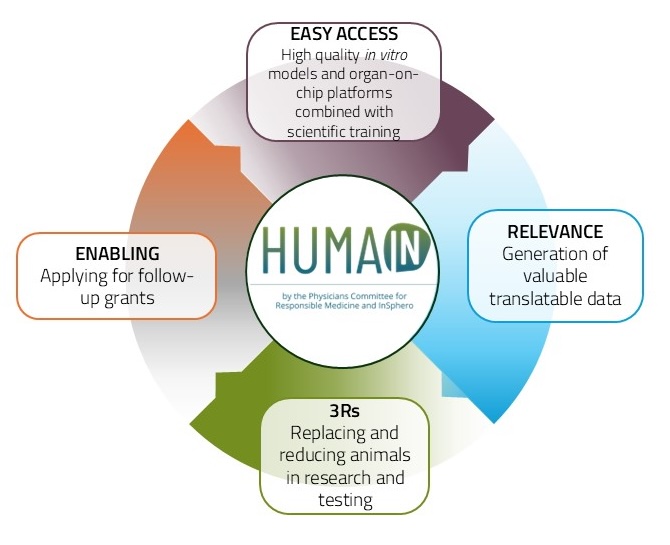Human Advanced In Vitro Model Initiative
Select a Section
Enabling and supporting researchers in developing and deploying advanced human-specific cell models for research and testing.
The Physicians Committee for Responsible Medicine, a nonprofit that advances human-based science, and InSphero, a global leader in 3D in vitro technology for drug safety and efficacy testing, are pleased to offer the 2025 Human Advanced In Vitro Model Initiative (HUMAIN) Award. The HUMAIN Award recognizes researchers working to expand access to and accelerate the uptake of human-specific nonanimal approaches.
Five winning laboratories will receive:
- $20,000 toward InSphero technology (Akura™ Spheroid Microplates, Akura™ Organ-on-Chip Technology, 3D InSight™ Microtissues, ARCTis™ Cryo Microtissues) or services (3D InSight™ Services)
- Access to an inaugural one-day training course in Schlieren, Switzerland, with up to $1,000 in travel grants to attend
- Two hours of monthly consulting with InSphero experts
- Up to $2,000 in travel grants to present findings at scientific conferences
- $2,500 towards open access publication fees
The Physicians Committee and InSphero will support the HUMAIN Award winning researchers in project execution and presentation of scientific findings. The awardees will attend an onsite session at InSphero’s headquarters in Switzerland, where 3D cell culture experts will provide a comprehensive hands-on training with the proprietary scalable and reproducible 3D in vitro tools for health research.
For questions, email humainaward [at] pcrm.org.







